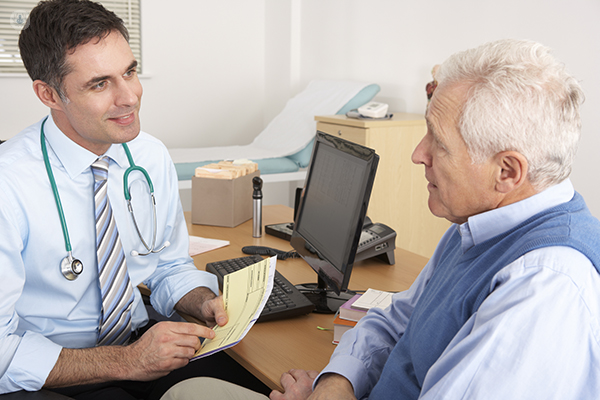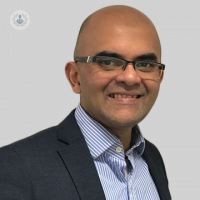What does a gastroscopy look for?
Escrito por:The digestive system is a long, complex section of our body, stretching from the mouth to the back passage. Many conditions can affect it. For some of these conditions, your doctor may order a gastroscopy – a test that involves inserting a tube with a camera down the throat. Why would you need this test? What conditions can it diagnose? We asked expert surgeon Mr Himaz Marzook for answers.

Why would you need a gastroscopy?
Gastroscopy is performed for a lot of reasons:
- To look for the cause of pain in the upper part of the abdomen – indigestion, heartburn, etc., especially when long-term and not resolving with medication.
- Difficulty swallowing (dysphagia)
- To look for cancer in the food pipe, stomach, etc.
- Nausea
- Vomiting
Is it the same as an endoscopy?
Endoscopy is a more generalised term, while gastroscopy is more specific.
Basically, the difference is that endoscopy can refer to a test that involves inserting the camera at either end of the digestive tract (mouth or anus), but gastroscopy is specifically the camera test from the top end, inserted through the mouth to examine the stomach and sometimes the duodenum. Gastroscopy is, therefore, a type of endoscopy.
What conditions can it diagnose?
Gastroscopy is used to diagnose the conditions that cause the aforementioned symptoms. Such conditions include:
- Coeliac disease, gluten allergies, etc. – here the gastroscopy may involve biopsies of the duodenum.
- Stomach ulcers and duodenal ulcers.
- Helicobacter pylori – gastroscopy can test lining of stomach for this bacteria, which can be a cause of indigestion.
- Stomach cancer
- Oesophageal cancer
What kind of sedation is used?
Gastroscopy can be done in two ways:
- A throat spray may be used to numb the throat (not sedation). This is similar to going to a dentist and having your gum numbed before tooth extraction – no injection is used. It wears off in about an hour and you are able to leave, drive and go about your day without problems. This is a big advantage.
- Sedation makes you more relaxed and it doesn’t put you to sleep completely, unlike anaesthetic. You are awake and know what’s going on. The advantage is a retrograde amnesia effect, so you will not remember the test. When you have sedation, you can’t drive – make sure somebody can pick you up and be with you for at least 24 hours.
Rarely, if patients can’t tolerate these, we offer general anaesthetic, but this is not recommended to be done routinely.
What are the after effects?
When the patient has throat spray, this will numb the throat. It may feel like they cannot swallow or breathe, but this is just a feeling of numbness – it doesn’t actually prevent these actions. After the procedure, there might be some soreness where the camera has been, but this is only temporary. It usually wears off after 45 minutes to an hour.
During gastroscopy, gas is used to inflate the stomach to make it easier to see. This should not be painful, but may cause some discomfort, or a feeling of bloating. However, it is a quick procedure, lasting 2-3 minutes, after which the patient will burp to expel the gas.
How much does gastroscopy cost?
The cost of gastroscopy depends on the patient’s insurance. Uninsured, the entire procedure, including hospital charges, doctor’s fees, nurses, etc. would come to about £1,500.
Book an appointment at Mr Marzook’s Top Doctors profile page.


